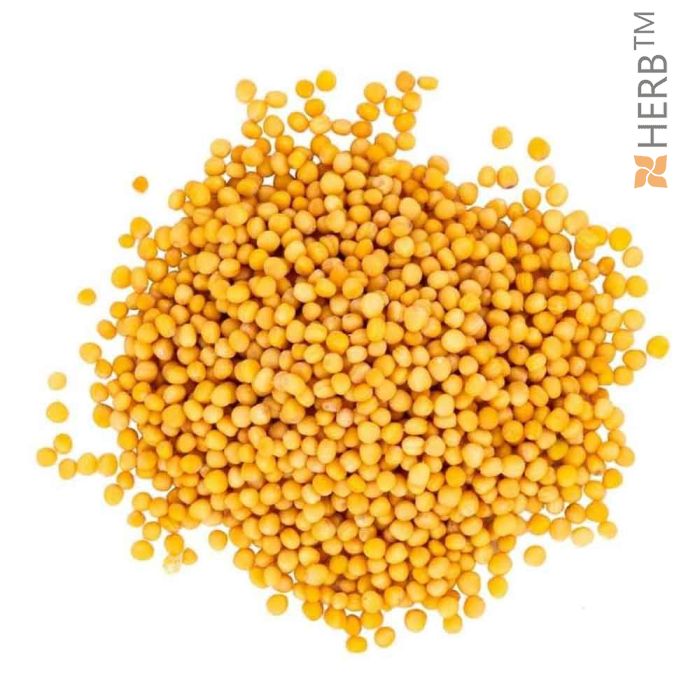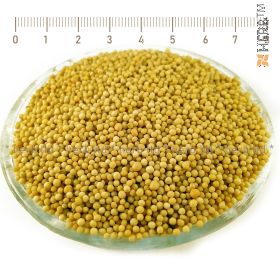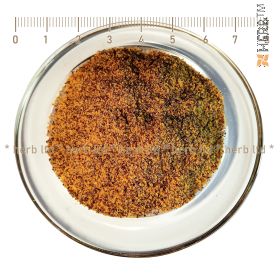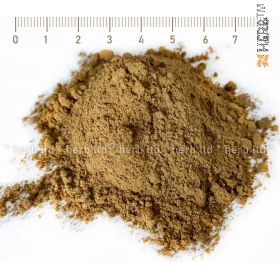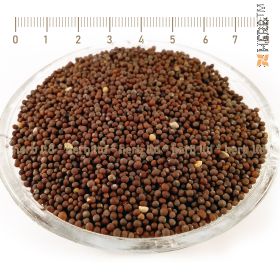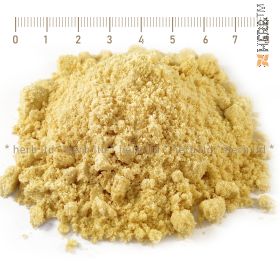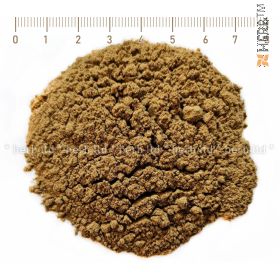Mustard Oriental whole seed - Sarep mustard yellow, Brassica juncea
- Производител: Herb Ltd
Oriental mustard is also known as Sarep mustard
Brassica juncea
Brassica juncea, commonly known as Oriental mustard, brown mustard, Chinese mustard or leaf mustard, is an annual herb native to South and East Asia. It has been cultivated for food in Europe and Asia for hundreds of years.
Although widely used as a vegetable for its leaves, this plant is often grown in some areas for its pungent seeds, which are used to flavor many dishes, and for the seed oil, which is used in cooking in Asia. The pods, containing smooth brown seeds, ripen in summer.
It has a really exceptional taste. If we have to describe its taste in one word, it is "warmth". Behind the heat, however, there are elements of spiciness similar to the taste of ordinary mustard. It is often described as horseradish-like, where the sensation quickly overwhelms the sinuses.
Mustard seed comes from the plant Sinapis alba, a member of the cabbage family, and contains two sulfur compounds - myrosin and sinigrin - as well as the enzyme myrosinase. When the seeds are broken and water is added, the enzyme breaks down the sulfur compounds. The result is a sharp-tasting oil that gives mustard its pungency. It has balanced levels of saturated and unsaturated fatty acids and omega-6 and omega-3 polyunsaturated fatty acids.
Use of Oriental mustard
Oriental mustard seeds are often used to flavor salad dressings, marinades, spice mixes, fish, seafood, sausages.
Use these seeds whenever you need to add a little more heat to dishes. Often used in Chinese cuisine, it is also found in the mustard at the local Chinese restaurant, English hot mustard, and some Dijon and German mustards.
You can also use it as a substitute in any recipe that calls for mustard powder. It complements well in combination with other "heating" spices such as black pepper, white pepper and hot peppers.
Preparation of mustard
To make your own regular-thick hot mustard, use 8 parts powdered seed to 7 parts liquid. Mustard is very fiery when first mixed. If you prefer a milder mustard, store at room temperature for about 6-8 weeks, 5-6 weeks for a medium-hot mustard and 3-4 weeks for a hot mustard. Once the desired heat level is reached, refrigerate, as chilling stops the fermentation process almost immediately.
Useful properties of Brassica juncea
Warms, improves blood circulation and heals inflammatory processes.
Brassica juncea has a strong anti-inflammatory effect. The plant is a rich source of antioxidants such as flavonoids, anthocyanins, sinapinic acid, beta carotene, lutein, vitamins C and E. These compounds help protect against oxidative stress by reducing cell damage and inflammation. Additionally, the vitamin K and glucosinolates present in Brassica juncea provide significant anti-inflammatory benefits, reducing the pain and symptoms of arthritis.
Oriental mustard is good for the eyes because it contains vitamin A, which protects the retina from damage and preserves night vision. One cup (100 g) of Brassica juncea contains 865 micrograms of vitamin A, which is 124% of the daily value of vitamin A. The plant also contains a significant amount of lutein and zeaxanthin, which are carotenoids with an antioxidant effect.
The contained vitamins, minerals, trace elements and bioactive compounds such as isorhamnetin, flavonol, which fights metabolic disorders, make Oriental mustard an effective remedy for overweight and obesity.
How to use Sarep mustard
Culinary purpose: To flavor salad dressings, marinades, spice mixes, fish, seafood, sausages. For making mustard.
Internally: 1 tsp. finely crushed mustard seeds are mixed with 100 g of honey. Take 1 tsp. 3 times a day after meals.
Externally: for paws, mix equal parts of mustard and plain flour and knead a dough with warm water. Apply gauze on the skin for 10-20 min. For children 3 to 6 min.
Allergens: mustard
Possible side effects
People taking a blood thinner such as warfarin should consult their doctor before including significant amounts of Brassica juncea in the diet, as this food is high in vitamin K.
Brassica juncea contains oxalates, which may increase the risk of kidney stones in genetically predisposed individuals.
People with diabetes who take blood sugar-lowering medications should be cautious about consuming Brassica juncea because of its hypoglycemic potential.

